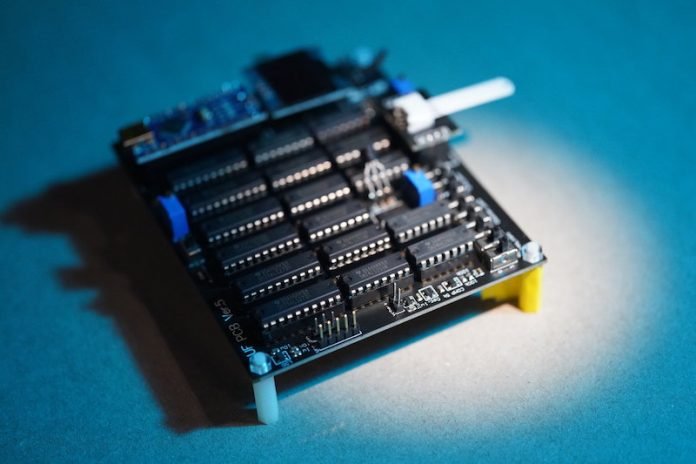
Scientists from the University of Florida and elsewhere have helped developed a COVID-19 testing device that can detect coronavirus infection in as little as 30 seconds as sensitively and accurately as a PCR.
The device could transform public health officials’ ability to quickly detect and respond to the coronavirus—or the next pandemic.
The research was conducted by Josephine Esquivel-Upshaw et al.
With any highly infectious disease, time can be a killer.
It is crucial to get a test result for a pathogen quickly, lest someone continue in their daily lives infecting others. And delays in testing have undoubtedly exacerbated the COVID-19 pandemic.
Unfortunately, the most accurate COVID-19 test often takes 24 hours or longer to return results from a lab. At-home test kits offer results in minutes but are far less accurate or sensitive.
Like PCR tests, the new device is 90% accurate, with the same sensitivity.
The hand-held apparatus is powered by a 9-volt battery and uses an inexpensive test strip, similar to those used in blood glucose meters, with coronavirus antibodies attached to a gold-plated film at its tip.
The strip is placed on the tongue to collect a tiny saliva sample.
The strip is then inserted into a reader connected to a circuit board with the brains of the device.
If someone is infected, the coronavirus in the saliva binds with the antibodies and begins a dance of sorts as they are prodded by two electrical pulses processed by a special transistor.
A higher concentration of coronavirus changes the electrical conductance of the sample. That, in turn, alters the voltage of the electrical pulses.
The voltage signal is amplified a million times and converted to a numerical value—in a sense, the sample’s electrochemical fingerprint.
That value will indicate a positive or negative result, and the lower the value, the higher the viral load. The device’s ability to quantify viral and antibody load makes it especially useful for clinical purposes.
The product can be constructed for less than $50. In contrast, PCR test equipment can cost thousands.
The research team also is studying its ability to detect specific proteins that could be used to diagnose other illnesses, including cancer, a heart attack and immune health.
“Yes or no. You’re infected or not infected. You get the answer right away,” said Ren.
Sign up for our newsletter for more information about this topic.
If you care about COVID, please read studies about the cause of inflammation and clotting in severe COVID-19, and scientists detect 4 new COVID variants in New York City wastewater.
For more information about COVID, please see recent studies about people who are 5 times more likely to get COVID reinfection, and results showing almost 1 in 3 older people develop new health problems after COVID-19 infection.
Copyright © 2022 Knowridge Science Report. All rights reserved.



